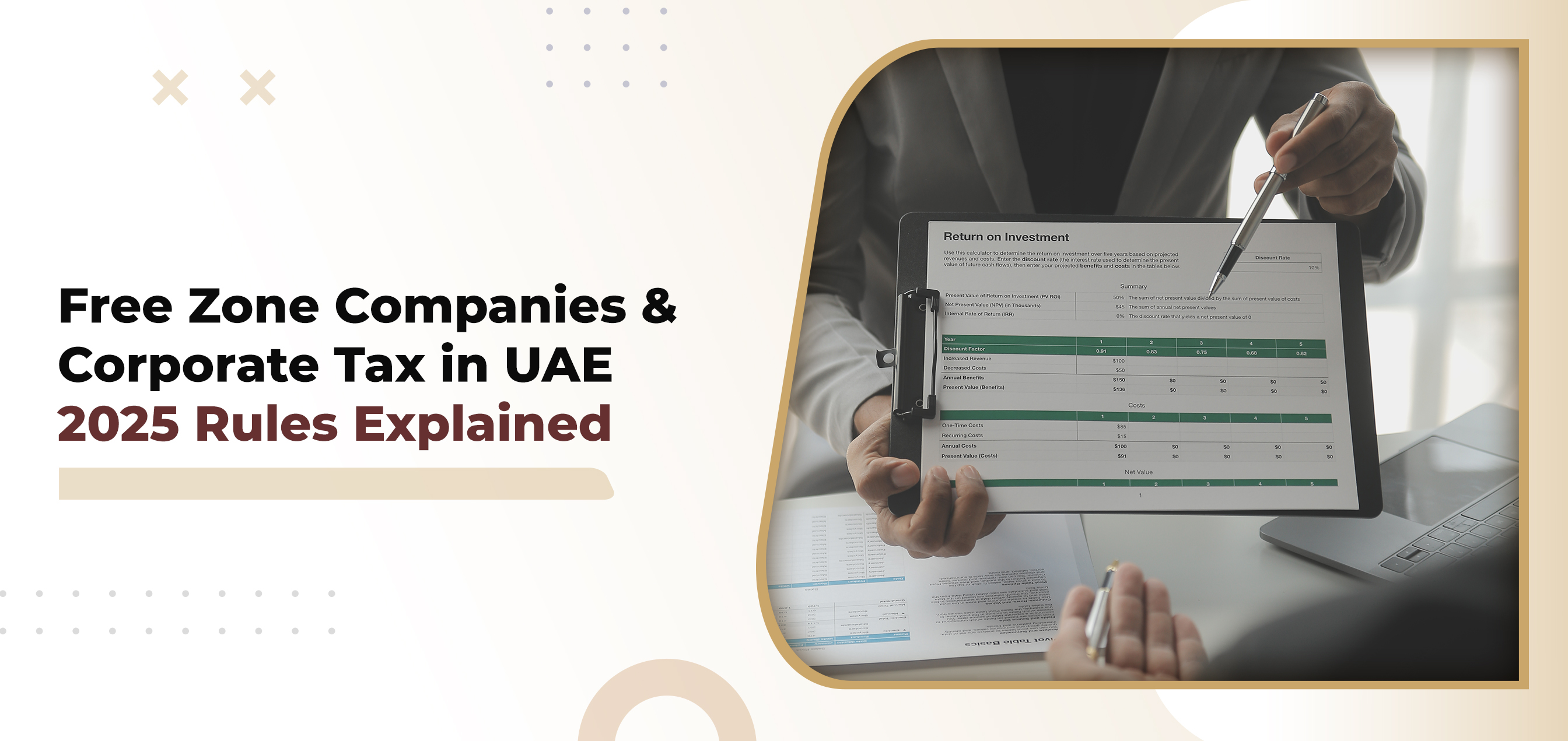
05 May 2025
Forming a Tax Group under the UAE Corporate Tax regime offers businesses a strategic advantage by simplifying tax compliance and optimising overall tax liability. By consolidating multiple entities under a single Tax Group, businesses can file a unified tax return, offset profits and losses across group members, and streamline their financial reporting obligations for Corporate Tax in UAE. This structure not only reduces administrative burdens but also enhances tax efficiency, making it an essential consideration for corporate groups looking to maximise their tax planning opportunities and maintain compliance with UAE tax laws. It’s significant to understand the process of tax group registration in UAE, responsibilities, and other requirements of the UAE Corporate Tax laws.
Conditions to Form a Tax Group
A Parent Company and one or more Subsidiaries can form a Tax Group by jointly applying to the Federal Tax Authority (FTA), provided the following conditions are continuously met throughout the relevant Tax Period:
• Both Parent and Subsidiaries must be juridical persons and UAE tax residents.
• The Parent Company must own 95% of the share capital of each subsidiary (directly or indirectly), 95% of voting rights of each subsidiary (directly or indirectly), and entitlement to at least 95% of each Subsidiary’s profits and net assets (directly or indirectly).
• Neither the Parent Company nor Subsidiaries should be Exempt Persons.
• Neither the Parent Company nor Subsidiaries should be Qualifying Free Zone Persons.
• All must follow the same financial year, and consistent accounting standards must be used across all members.
A Tax Group will cease to exist if any of the above conditions are not met at any point during the Tax Period, unless under specific exceptions such as a change in Parent Company or internal restructuring.
How to Register a Tax Group with the FTA
Once eligibility is established, the Parent Company and each Subsidiary must jointly submit an application to the FTA, including the first intended Tax Period to form a Tax Group. Key considerations:
• Submit the application before the end of the Tax Period for which formation of the Tax Group is requested.
• The FTA may accept or adjust the effective Tax Period.
• The FTA’s approval does not guarantee the conditions are or will continue to be met; In other words, if the Parent Company or all Subsidiaries fail to continuously meet the conditions in the first Tax Period for which they are part of the newly formed Tax Group, then it will be treated as if no Tax Group had been formed from the beginning of that Tax Period, even if the FTA has approved the application. In addition, the FTA can reassess compliance with the conditions at any time.
• Each applicant must already have an individual Tax Registration Number before applying. Upon approval, the Tax Group receives a new, unique Tax Registration Number for Corporate Tax purposes. A Tax Group is treated as a single Taxable Person for the purposes of the Corporate Tax Law.
Corporate Tax Returns for the Tax Group
Once a Tax Group is formed, the Parent Company is responsible for the UAE Corporate Tax registration, deregistration, cessation procedures and other requirements for the tax group’s Corporate Tax compliance. The Parent Company must file a Tax Return for the Tax Group and settle the Corporate Tax payable no later than 9 months from the end of the relevant Tax Period.
Deadlines for Tax Group Applications
|
Action |
Deadline |
|
|---|---|---|
|
1. Application submission for:
|
The application must be submitted to the FTA before the end of the Tax Period for which the formation or joining of a Tax Group is requested. |
|
|
2. Filing a Tax Return for the tax group |
No later than 9 months from the end of the relevant Tax Period |
|
|
3.Settle the Corporate Tax Payable |
No later than 9 months from the end of the relevant Tax Period |
|
Attribution of Income & Arm’s Length Principle
A Tax Group is required to calculate the Taxable Income attributable to one or more of its members in the following situations, such as when a member has unutilised pre-grouping Tax Losses, when a member has earned income for which the Tax Group can claim Foreign Tax Credit, a member of the Tax Group benefits from Corporate Tax incentives, or a member of the Tax Group has unutilised carried forward pre-Grouping Net Interest Expenditure.
If a Tax Group has not attributed its Taxable Income, it would not be possible to claim relief for the situations mentioned above.
For the purposes of attribution of Taxable Income to members of a Tax Group, the Taxable Income is calculated as if each member were a separate Taxable Person using the accounting basis of the Tax Group. Transactions between members of a Tax Group should be determined consistently with the arm’s length principle where these transactions have been eliminated under consolidation.
Tax Losses and Interest Deduction Limitation
Tax losses can be carried forward and offset against future taxable income, but only up to 75% of the taxable income in any given tax period. For tax groups, which are treated as a single taxable person, these losses are consolidated at the group level.
If a Subsidiary joins a Tax Group, its existing unutilised Tax Losses become pre-Grouping Tax Losses that can only be offset against the Taxable Income of the Tax Group insofar as this income is attributable to the relevant Subsidiary.
Existing unutilised Tax Losses of an existing Tax Group cannot be used against the Taxable Income of a Subsidiary that has joined the existing Tax Group after the Tax Losses were incurred (“restricted Tax Group Tax Losses”).
Interest Deduction Limitation Rule
If the Tax Group has combined Net Interest Expenditure exceeding AED 12 million and the Tax Group has insufficient EBITDA to utilise its Net Interest Expenditure, the 30% restriction on Interest deduction will apply, even if there are members of the Tax Group that on a standalone basis would have had sufficient EBITDA to utilise their Net Interest Expenditure.
AMCA: Your Corporate Tax Partner
Navigating the complexities of FTA Corporate Tax registration for a tax group, planning, and professional support. AMCA is a reliable auditing firm holding expertise in Corporate Tax in Dubai. At AMCA, our tax consultants provide expert assistance with tax registration in UAE, compliance with the Corporate Tax law UAE, and reporting.




